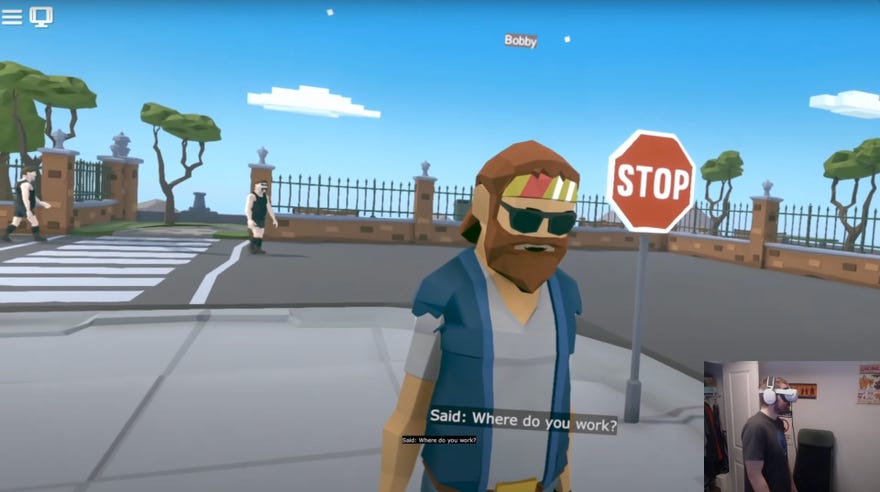A glimpse into the future of being yelled at by videogame AI
"WHAT DO YOU WANT?"
Modbox is a multiplayer game creation sandbox. OpenAI GPT-3 is a tool that generates human-like text. Replica is a tool that generates human-like voice acting. Combine these three things, as Modbox developer Lee Vermeulen did, and you get: given the brush off by shouty NPCs you can have conversations with, in VR, with your real voice.
This is the future.
Here's a video demonstrating all these things together. The embed below should start at 4 minutes and 27 seconds, which is when Vermeulen starts the test, but it's worth going back to the beginning to get a better sense of how it's set up, too.
There is a very obvious clunkiness to this. Bobby, the NPC, says that City Hall is at "City Hall street location". The voices aren't wholly human, but human-like.
Yet it's still amazing. It works! He talks to characters in a computer game and they talk back with naturalistic dialogue! If you watch the video from the start, you'll see that Bobby's dialogue is generated from just a two sentence text prompt. A longer prompt, written more carefully, would produce better results.
GPT-3 has been around for a little while and there are all sorts of interesting applications. There's a text adventure created using it to generate the text. You can have it to generate code from text descriptions, or have it mimic the writing style of famous authors by first priming it with their real works. One day, obviously, someone will feed all of Rock Paper Shotgun's existing posts into it, and everyone who works here will be replaced. The Alicebot, they'll call it.
There are, of course, all kinds of limitations, but I can picture a day not far off when the NPCs will yell "We know you're in there, Fisher!", and I'll be able to yell back, "No I'm not, actually!".
Modbox is in early access on Steam and will cost you £11/$15/€15. The indev version contains Replica integration and the text-to-speech functionality, but not any of the OpenAI GPT-3 stuff you see in the video above, as its inclusion is dependent on permission from OpenAI.


